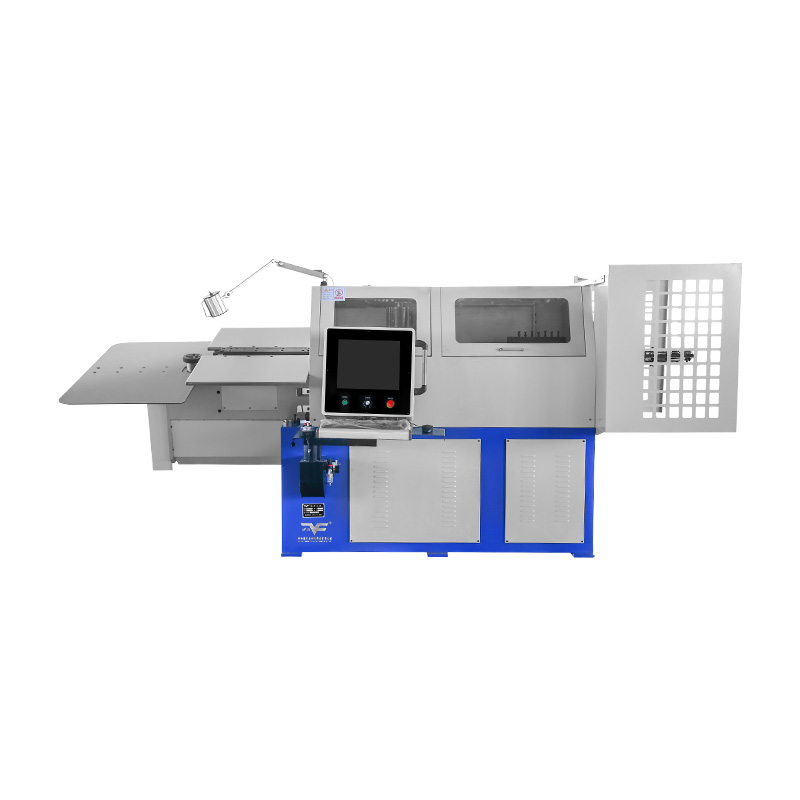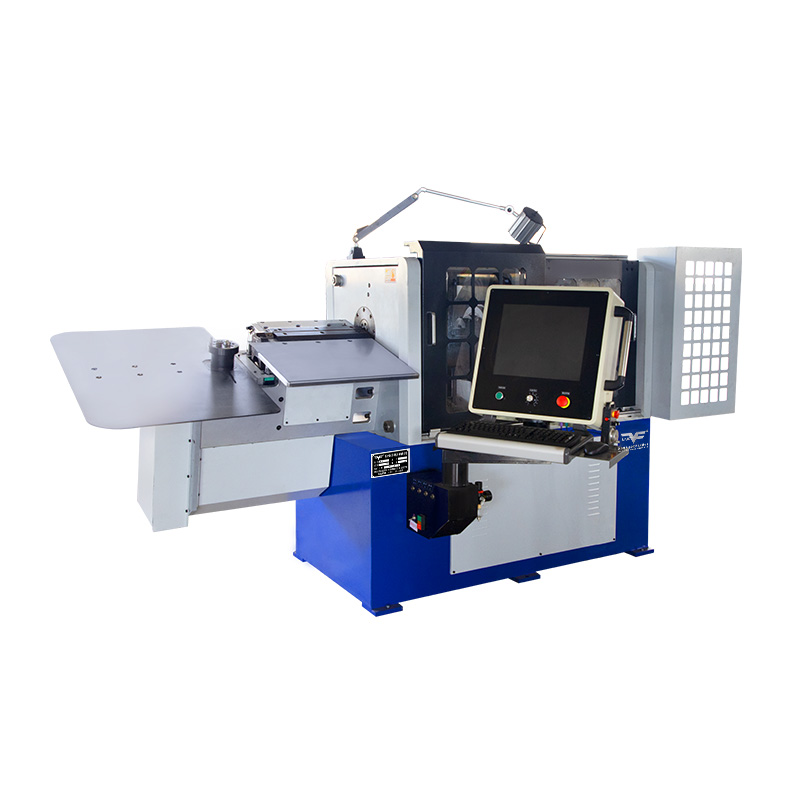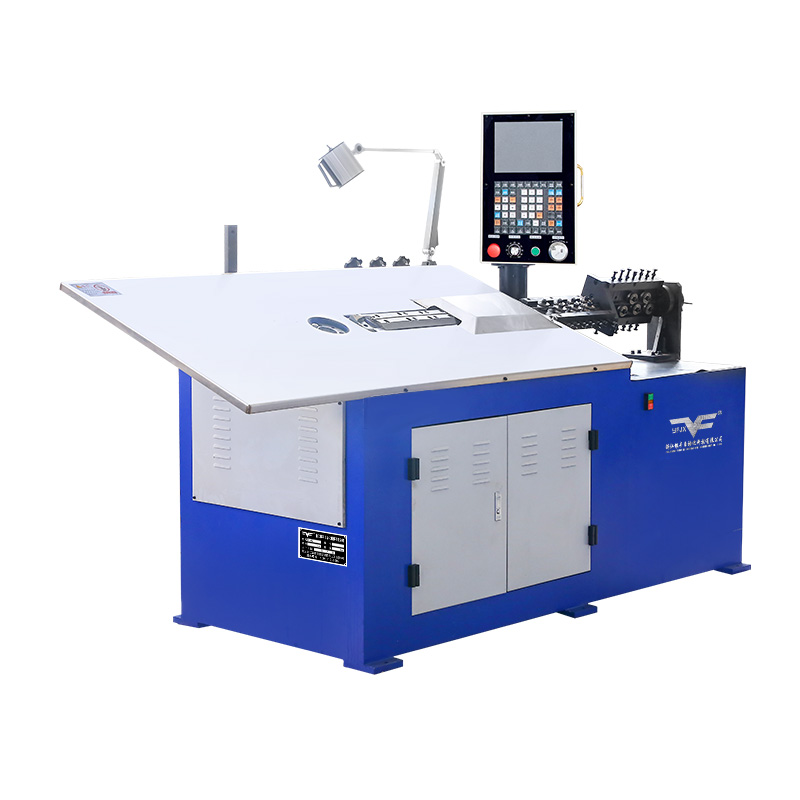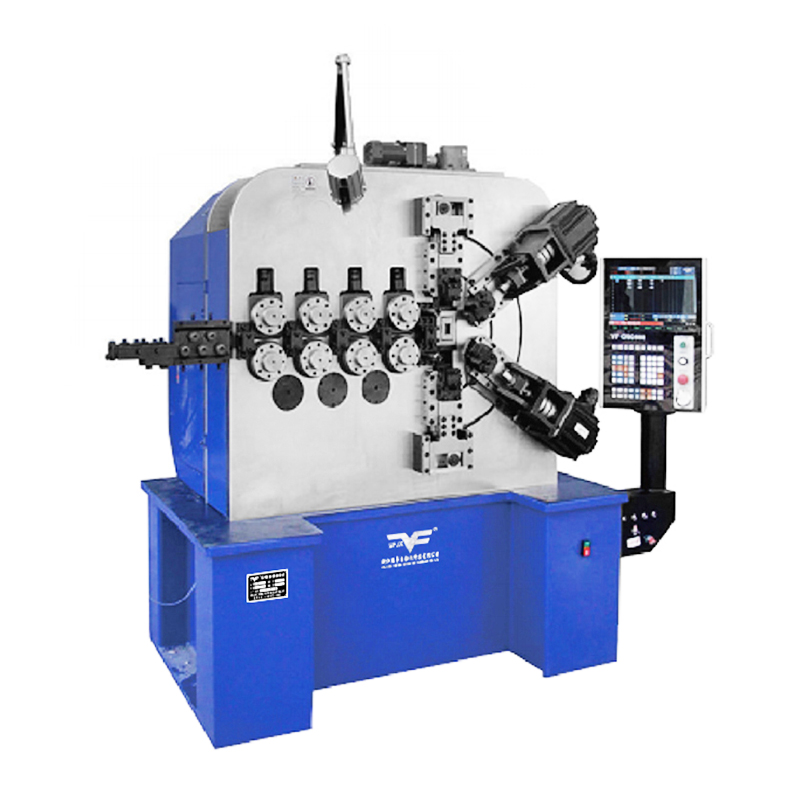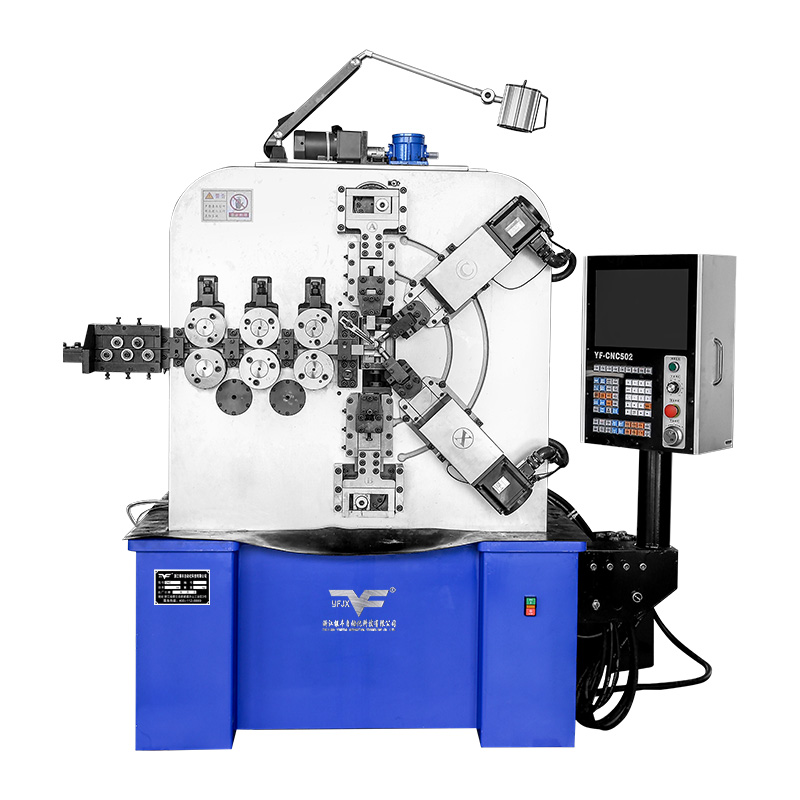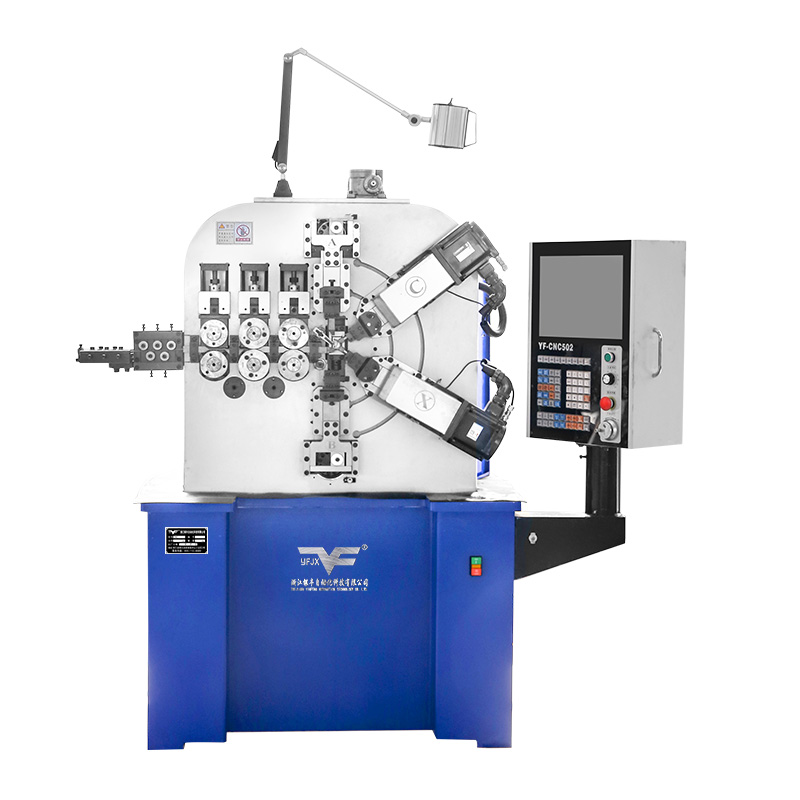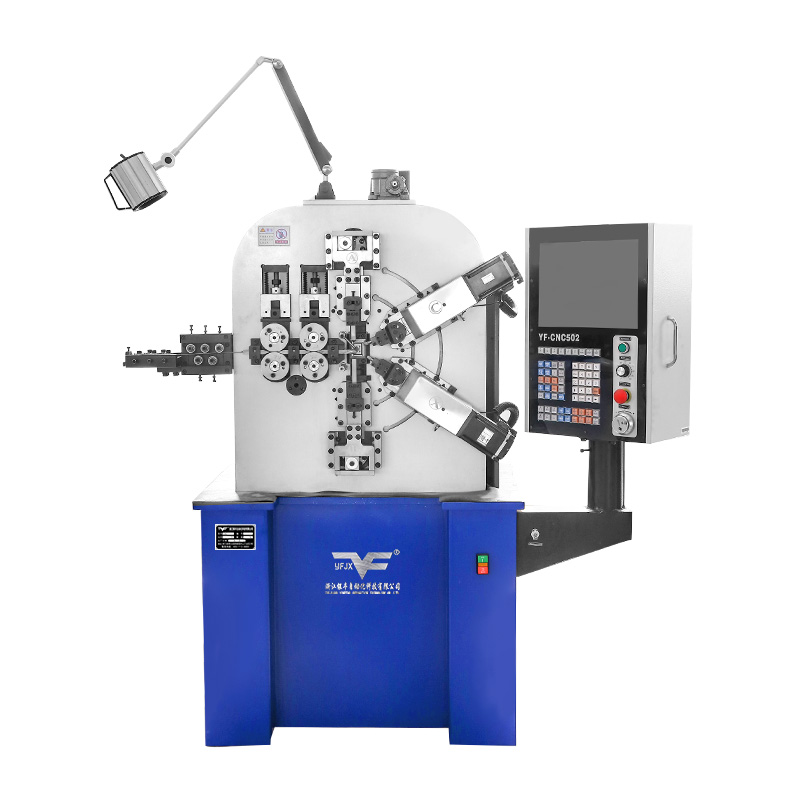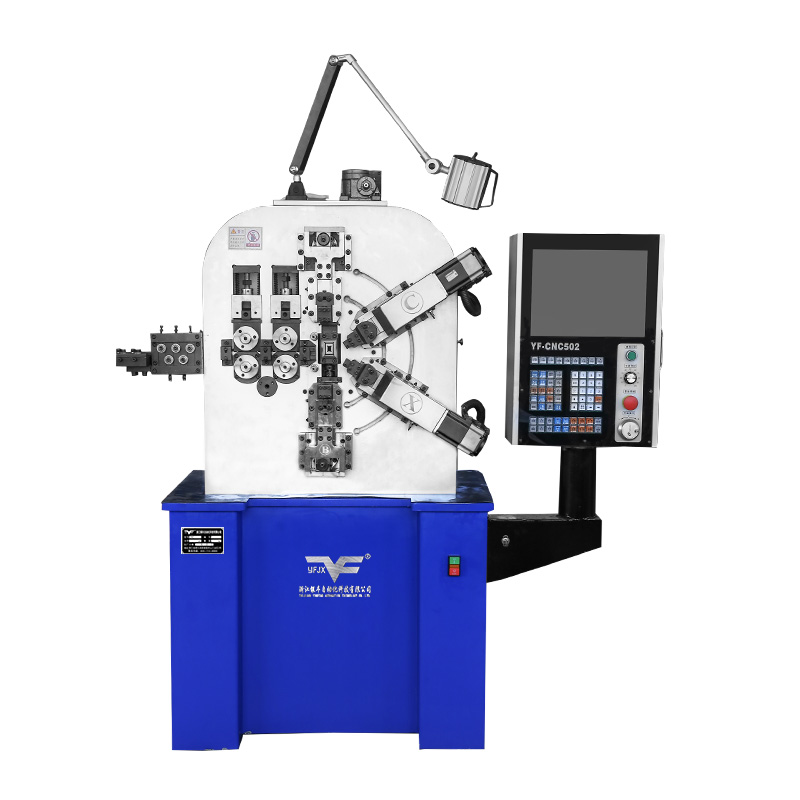How CNC Wire Forming Machines Are Shaping Modern Manufacturing
Industry News-CNC wire forming machines have become a key player in the manufacturing world, offering precise control over the shaping of wire materials. These machines are not only revolutionizing the industrial landscape but are also critical in a variety of industries, from automotive to aerospace, where exact wire configurations are essential.
A CNC (Computer Numerical Control) wire forming machine is a tool designed to bend and shape wires into specific forms with good accuracy. The unique advantage of CNC technology is its ability to handle complex designs and repeated formations with minimal variation. The use of software allows operators to program the machine to create intricate wire shapes, ensuring that each part produced meets exact specifications.
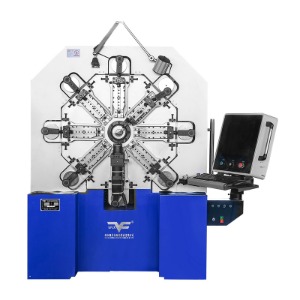
CNC-YF-1245/1250 12-axis Camless Wire Spring Forming Machine
One of the key features of the CNC wire forming machine is its adaptability to different wire materials and diameters. Whether the wire is made of steel, aluminum, or copper, the CNC wire forming machine can manage various complexities while maintaining precision.
Advantages of CNC Wire Forming Machines
The most significant advantage of CNC wire forming machines lies in their precision. Unlike manual methods or older mechanical processes, the CNC wire forming machine uses computer programming to ensure that each piece is shaped perfectly according to the set dimensions. This high level of accuracy reduces waste and ensures consistency across multiple productions, a critical factor in industries where even slight deviations can cause issues.
Moreover, CNC wire forming machines allow for quicker setups. The ability to easily switch between different wire shapes and configurations without needing to retool makes these machines highly efficient for manufacturers dealing with varying product requirements.
3D Wire Forming Capabilities
The integration of 3D wire forming technology takes the capabilities of CNC wire forming machines to the next level. Unlike traditional 2D forming processes, where wire is bent along two axes, 3D wire forming enables manufacturers to bend wires along three axes. This added flexibility allows for the creation of more complex and robust wire parts that can meet the demands of advanced industrial applications.
In industries like automotive, 3D wire forming helps in creating wire harnesses that are more durable and efficient. In aerospace, this technology contributes to lightweight and highly specialized components that require intricate bending.
Applications Across Industries
The versatility of CNC wire forming machines extends to a wide array of industries. In the automotive industry, for example, they are used to produce essential components such as springs, wire harnesses, and brackets. The precision offered by these machines ensures that these parts fit seamlessly into the larger assembly, reducing the chances of malfunction or assembly line delays.
In the medical field, CNC wire forming machines are used to create various surgical instruments and devices. These machines allow manufacturers to create delicate and intricate shapes required for medical tools, ensuring the highest level of performance and safety.
Furthermore, the electronics industry benefits from 3D wire forming to produce complex wiring structures that support advanced electrical systems. The ability to produce wires in unique shapes helps in organizing and optimizing the space within electronic devices.
CNC wire forming machines are a testament to how technological advancements are shaping the future of industrial manufacturing. With 3D wire forming capabilities, these machines offer the precision, efficiency, and versatility needed to meet the diverse needs of modern industries. As technology continues to evolve, the role of CNC wire forming machines will only become more critical, driving further innovations in both product design and manufacturing processes.

 English
English русский
русский Español
Español 简体中文
简体中文